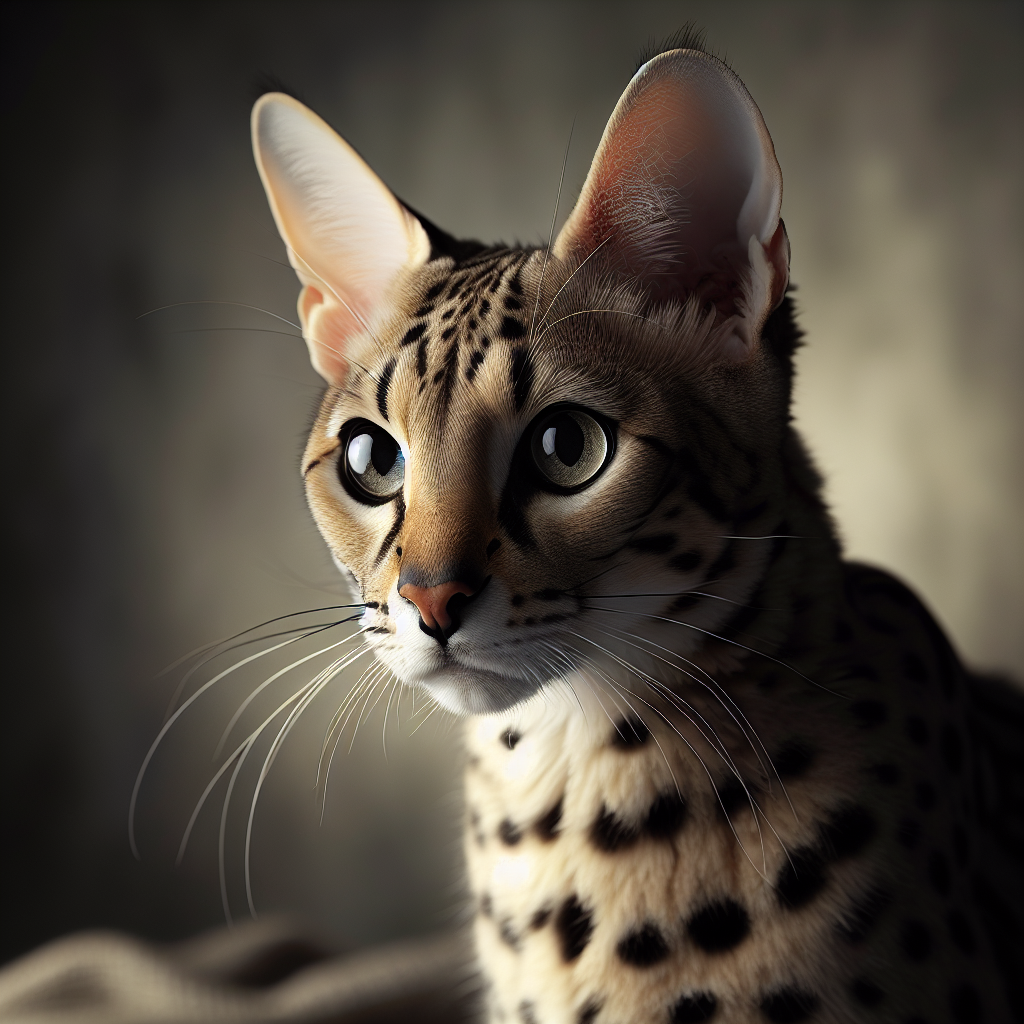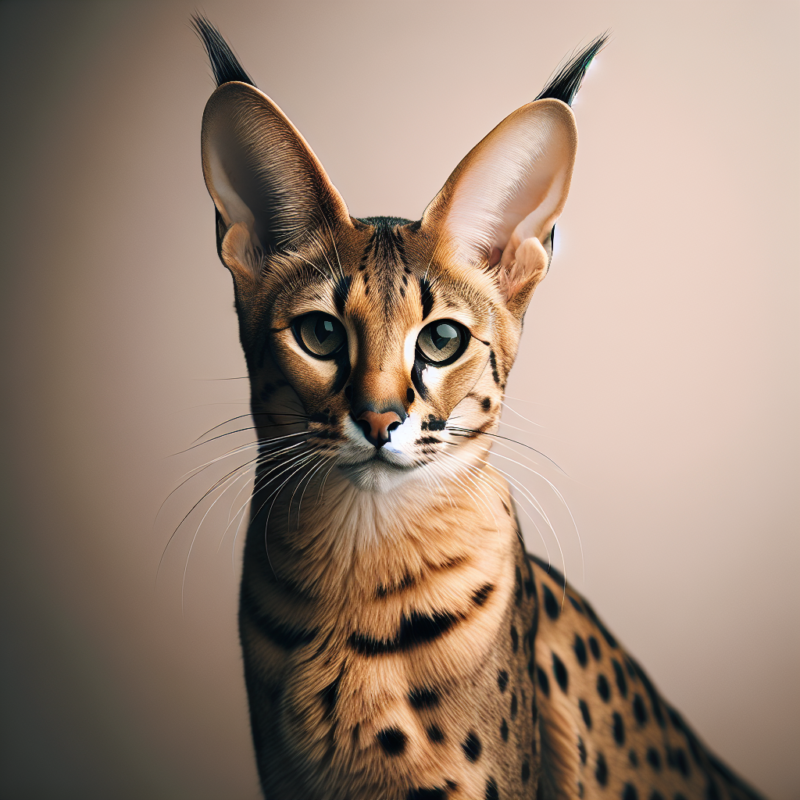About Savannah Kittens
f2 savannah cat
f2 savannah cat
The History and Characteristics of the F2 Savannah Cat
The F2 Savannah cat is a unique and exotic breed that has gained popularity in recent years. With its striking appearance and playful personality, it’s no wonder that many cat lovers are drawn to this breed. But what exactly is an F2 Savannah cat, and where did it come from? In this article, we will delve into the history and characteristics of this fascinating feline.
The F2 Savannah cat is a hybrid breed, created by crossing a domestic cat with a wild African Serval. This crossbreeding began in the 1980s, when a breeder named Judee Frank successfully bred a male Serval with a Siamese cat. The resulting kittens were the first generation of Savannah cats, known as F1s. These F1s were then bred with domestic cats to produce the second generation, known as F2s.
Characteristics of F2 savannah Cat
One of the most distinctive characteristics of the F2 Savannah cat is its size. These cats can grow to be quite large, with males reaching up to 20 pounds and females up to 15 pounds. This is due to their Serval heritage, as Servals are one of the largest wild cats in Africa. However, despite their size, F2 Savannah cats are known for their graceful and athletic build, making them excellent jumpers and climbers.
In addition to their size, F2 Savannah cats also have unique physical features. They have long legs, large ears, and a short, spotted coat. Their coat can come in a variety of colors, including brown, silver, and black. The spots on their coat can also vary in size and shape, giving each cat a one-of-a-kind appearance. These physical characteristics are a result of their Serval ancestry, as Servals have similar features.
Aside from their physical appearance, F2 Savannah cats are also known for their intelligence and energy. They are highly active and require plenty of mental and physical stimulation. This makes them a great companion for those who lead an active lifestyle and are looking for a cat that can keep up with them. F2 Savannah cats are also known for their curiosity and love to explore their surroundings, making them a great fit for households with plenty of space for them to roam.
why are savannah kittens wild?
While F2 Savannah cats have many desirable traits, they are not the ideal pet for everyone. Due to their wild ancestry, they may exhibit some behaviors that are not typical of domestic cats. For example, they may be more vocal and have a higher prey drive. It’s important for potential owners to do their research and understand the unique needs and behaviors of this breed before bringing one into their home.
In terms of health, F2 Savannah cats are generally healthy and have a lifespan of 12-20 years. However, like all breeds, they may be prone to certain health issues, such as hypertrophic cardiomyopathy and dental problems. It’s important for owners to schedule regular check-ups with a veterinarian and provide proper nutrition and exercise to ensure their cat’s well-being.
F2 Savannah Cat Care: Tips and Tricks for Owners

The F2 Savannah cat is a unique and exotic breed that has gained popularity in recent years. These cats are a cross between a domestic cat and a wild African Serval, resulting in a stunning and intelligent hybrid. As an F2 Savannah cat owner, it is important to understand the specific care and needs of this breed to ensure their health and happiness. In this article, we will discuss some tips and tricks for F2 Savannah cat care.
First and foremost, it is crucial to provide your F2 Savannah cat with a proper and balanced diet. These cats have a high metabolism and require a diet that is rich in protein. It is recommended to feed them a high-quality, grain-free dry food supplemented with wet food or raw meat. Avoid giving them human food, as it can upset their sensitive stomachs. Additionally, make sure to provide them with fresh water at all times.
F2 Savannah cats are known for their high energy levels and need plenty of exercise to stay healthy. It is important to provide them with enough space to run and play, as well as interactive toys to keep them mentally stimulated. These cats also enjoy climbing, so providing them with a tall scratching post or cat tree is a great way to satisfy their natural instincts.
Grooming F2 Savannah Kittens 🐱
Grooming is another essential aspect of F2 Savannah cat care. These cats have a short, dense coat that requires minimal grooming. However, it is recommended to brush them once a week to remove any loose hair and prevent matting. It is also important to regularly trim their nails and clean their ears to prevent any infections.
F2 Savannah cats are highly social and thrive on human interaction. They form strong bonds with their owners and enjoy being a part of the family. It is important to spend quality time with your F2 Savannah cat, playing and cuddling with them. They also do well with other pets, especially if they are introduced at a young age. However, it is important to supervise their interactions with smaller animals, as their wild instincts may kick in.
As with any pet, it is crucial to provide your F2 Savannah cat with regular veterinary care. These cats are generally healthy, but they may be prone to certain health issues such as dental problems and heart disease. It is recommended to schedule annual check-ups with a veterinarian who is familiar with the breed. Additionally, make sure to keep up with their vaccinations and flea and tick prevention.
One of the most important aspects of F2 Savannah cat care is providing them with a safe and secure environment. These cats are known for their curiosity and intelligence, which can sometimes get them into trouble. It is important to cat-proof your home, making sure to secure any potential hazards such as electrical cords and toxic plants. It is also recommended to keep them indoors, as they may have a strong prey drive and can be at risk of getting lost or injured outside.
The Controversy Surrounding F2 Savannah Cat Ownership and Breeding
The F2 Savannah cat, a hybrid breed resulting from the crossbreeding of a domestic cat and a serval, has been gaining popularity in recent years. With its striking appearance and exotic heritage, it’s no wonder that many cat enthusiasts are drawn to this unique breed. However, the ownership and breeding of F2 Savannah cats have sparked controversy among animal welfare advocates and breeders alike.
On one hand, proponents of F2 Savannah cat ownership argue that these cats make great pets and are no different from any other domestic cat. They point out that F2 Savannah cats are bred to have a friendly and sociable temperament, making them suitable for households with children and other pets. They also highlight the fact that these cats are highly intelligent and can be trained to walk on a leash, play fetch, and even use the toilet.
However, opponents of F2 Savannah cat ownership raise concerns about the welfare of these cats. They argue that the breeding of F2 Savannah cats is unethical and can lead to health issues and behavioral problems. The serval, a wild cat native to Africa, is not a domesticated animal and has different needs and behaviors compared to domestic cats. By breeding these two species, there is a risk of creating cats with unpredictable temperaments and health issues.
Is F2 Savannah cat dangerous ?
Moreover, there is also a concern about the impact of F2 Savannah cat ownership on the serval population. Servals are already facing threats in their natural habitat due to habitat loss and poaching. By breeding them with domestic cats, there is a fear that the demand for F2 Savannah cats will lead to an increase in serval poaching and exploitation.
The controversy surrounding F2 Savannah cat ownership is not limited to the ethical concerns of breeding. There are also practical considerations that need to be taken into account. F2 Savannah cats are not legal to own in all states and countries. In some places, they are considered wild animals and require special permits and licenses to own. This can be a significant barrier for potential owners who may not be aware of these regulations.
Furthermore, F2 Savannah cats have specific needs that may not be suitable for all households. They require a large living space, as they are highly active and need room to run and play. They also have a strong prey drive, which can be a concern for households with small pets. These cats also have a special diet that needs to be carefully monitored to ensure they are getting the proper nutrition.
The controversy surrounding F2 Savannah cat ownership has also spilled over into the breeding community. Some breeders argue that the breeding of F2 Savannah cats is necessary to preserve the breed and prevent inbreeding. However, others argue that the breeding of these cats is purely for profit and does not prioritize the welfare of the cats.
conclusion
In response to these concerns, some organizations have implemented guidelines and regulations for F2 Savannah cat breeding. The International Cat Association (TICA) has set standards for the breeding of F2 Savannah cats, including health testing and responsible breeding practices. However, these guidelines are not mandatory, and there is no governing body that oversees the breeding of F2 Savannah cats.
In conclusion, the controversy surrounding F2 Savannah cat ownership and breeding is complex and multifaceted. While some argue that these cats make great pets and are no different from any other domestic cat, others raise concerns about the welfare of these cats and the impact on the serval population. As with any exotic pet, it is essential for potential owners to thoroughly research and consider all aspects before bringing an F2 Savannah cat into their home. Responsible ownership and breeding practices are crucial to ensure the well-being of these unique and beautiful cats.


Pingback: f6 savannah cat - Kitten Breeders